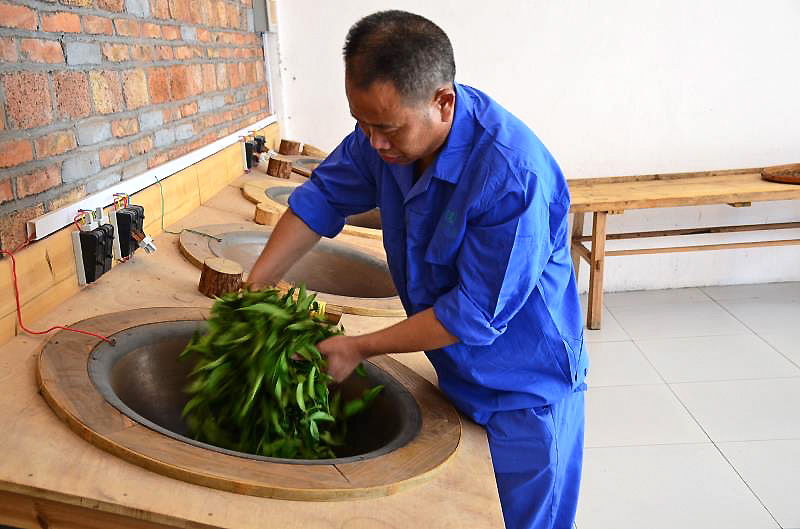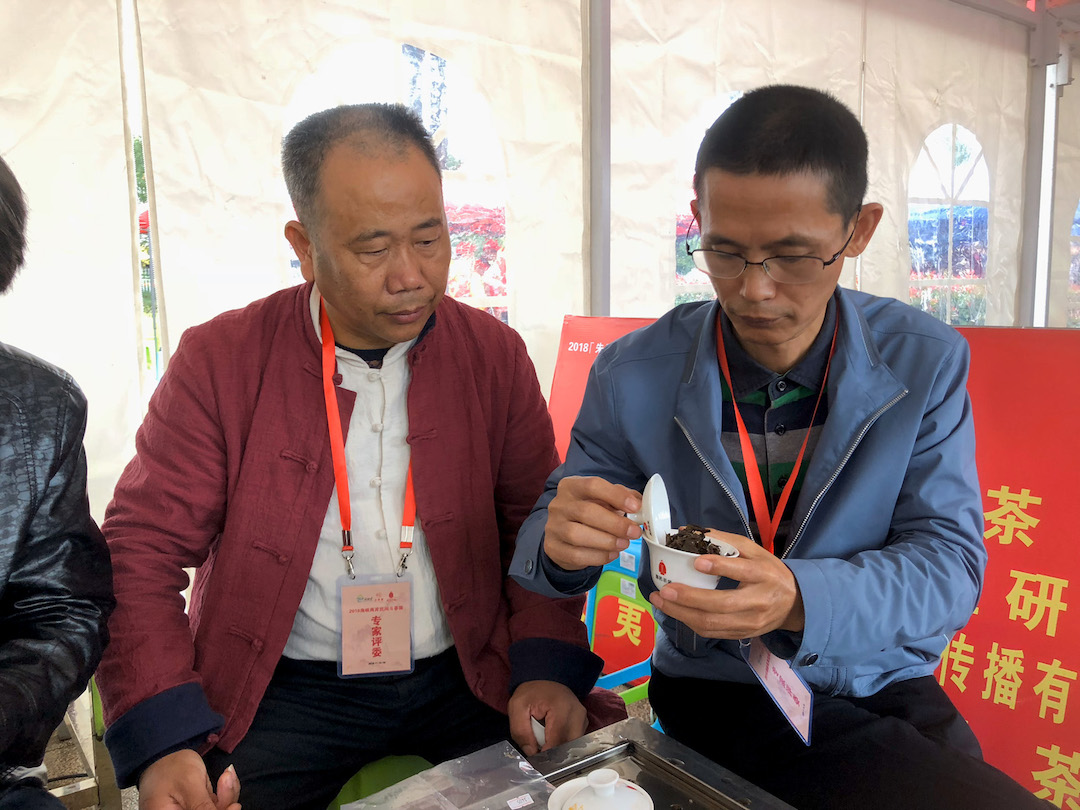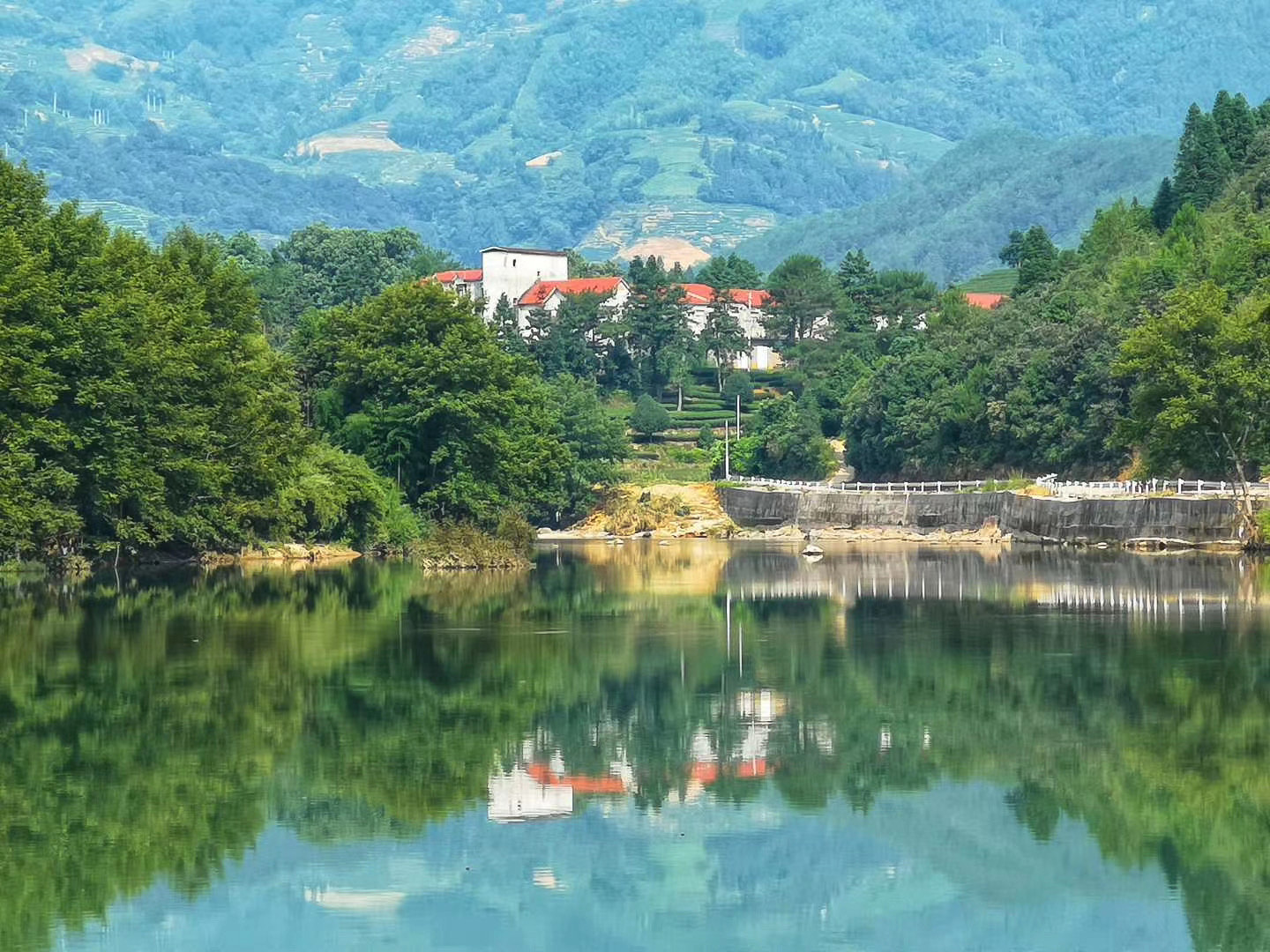
If there’s one thing that distinguishes Liu Dexi’s teas, it’s his willingness to go for old-school heavy roasts. Teas with this level of high-temperature roasting are downright pyroclastic when they are fresh, but they go on to reveal surprising floral dimensions when they age.
This traditional approach owes to Mr. Liu’s long tea-making career. He was born into a tea farming family and entered tea processing in his early 20s. He has been making tea for 27 years and has taught many Wuyi rock wulong tea masters the skills for making traditional handcrafted Wuyi yancha since 1993. He first studied roasting for four years before becoming one of the first students of the far-famed Liu Guoying in 1997. Under Liu Guoying’s instruction, Dexi studied all aspects of rock wulong production, learning both traditional and modern techniques. The two men are frequent collaborators today, but Dexi still humbly calls Guoying “my teacher.”

Liu Dexi is now a teacher himself, the boss of his own factory, and frequently works as an expert evaluator in Wuyishan’s tea competitions. That doesn’t mean he’s any less hands-on when it comes to making tea. Every spring he’s in his factory with his team, their attention fully on the leaves. “When you’re making tea, you’ve got to grasp it with your hands, your eyes, and your nose,” he says.
That relentless hands-on approach earned him a distinguished recognition from the Wuyishan city government as an Representative Inheritor of a Traditional Craft for Wuyi Yancha in 2017, one of only 16 tea makers in Wuyishan to have such a designation. With such massive achievements, you’d think he’d be content to rest on his laurels, but Mr. Liu is ever striving to make better tea. He’s even known to send his personal tea to competitions, something otherwise unheard of for masters of his stature who would seemingly have nothing to gain and everything to lose by competing.
Working with Mr. Liu for over a decade, we’re not surprised. That mix of quiet daring and humility tracks with Mr. Liu’s general attitude. A few springs back, we caught up with Mr. Liu in the middle of rolling wulong. When one of us remarked on his impressive command of the traditional technique, Mr. Liu just smiled and said, “it’s my teachers that are good,” and then continued to make his tea.
Mr. Liu now makes tea at the Qing Shen Pavilion Tea Garden near the Jiu Qu (Nine Bends) River. This pavilion was set up in 1302 in the Yuan Dynasty to produce tribute tea for the imperial court, and is now a specialized center for government tea research. The garden is home to hundreds of varieties of tea plants from Wuyishan.

